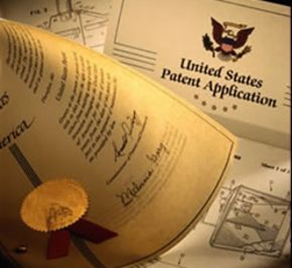 I always advise software startups to file patents to protect their “secret sauce” from competitors, and to increase their valuation. The good news is that a patent can scare off or at least delay competitors, and as a “rule of thumb” every patent can add up to $1M to your startup valuation for investors, or for M&A exits (merger and acquisition).
I always advise software startups to file patents to protect their “secret sauce” from competitors, and to increase their valuation. The good news is that a patent can scare off or at least delay competitors, and as a “rule of thumb” every patent can add up to $1M to your startup valuation for investors, or for M&A exits (merger and acquisition).
The bad news is that patent trolls can squeeze the lifeblood out of innocent and unsuspecting entrepreneurs, as exemplified by the current mess around Lodsys patent No. 7222078. This patent holding company is charging infringement and demanding royalties from every app developer for the iPhone and Android, for a feature most agree has been in apps for many years.
Yes, the software patent process is a mess. I say this with conviction even after I survived the process, and have a software patent pending. Consider this list of commonly recognized software patent flaws, as summarized from my research, Paul Graham’s “Are Software Patents Evil?” essay, and the most recent “Enough is Enough” article by VC Fred Wilson, sparked by the Lodsys case.
- Process is onerous, expensive, and time consuming. Count on spending $10K to $20K per patent just for a USA application today, unless you do most of the work. Even after your application is accepted, the issuing process takes a lifetime in today’s technology (4-5 years). Then you need to repeat the process for every country of interest.
- Patents have become a tax on innovation. A lot of companies, like Lodsys above, buy up software patents that are over-broad, and hold startups hostage, after the fact, through royalties and litigation. They know that these entrepreneurs don’t have the skill or resources to defend themselves. Patents only help the big guys who want no change.
- Software technology changes rapidly. Software changes fast and the government moves slowly. The USPTO has been overwhelmed by both the volume and the novelty of applications for software patents, and they can’t maintain a qualified staff. Patents currently last 20 years, which is way too long in the software business.
- Patents granted that don’t meet the criteria. To be patentable, an invention has to be more than new. It also has to be “novel” and non-obvious. Moreover, patent law in most countries says that software “algorithms” aren't patentable. So lawyers routinely frame a software algorithm as a "system and method" to meet the criteria.
- Valid patent can be overturned by unpatented prior art. The USPTO operates on the doctrine of “first to invent,” rather than first to patent. This is ugly, as it means that a valid patent can be overturned by another inventor with a preponderance of evidence of prior art. This happened to RIM (Research In Motion), and cost them nearly $650M to recover.
- Applying for a patent is a negotiation. As a result, lawyers always apply for a broader patent than they think will be granted, and the examiners reply by throwing out some of the claims and granting others. They don’t insist on something very narrow, with proper technical content.
- Different rules around the world. What I have described so far is the situation in the US. In Europe, software is already deemed not patentable, and other parts of the world are somewhere in between. In some countries, software patents are not recognized, and in others they are not enforced. We need a global solution.
So what’s the answer? I would argue to simply eliminate the software patent – since software is an implementation and is already covered by trademark and copyright law anyway. Another argument is that software by itself is information, not physical. It is in the jargon not “technical.” It is like a piece of music that is loaded into an iPod, or a record placed on a record player.

